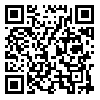Volume 6, Issue 24 (1-2013)
etiadpajohi 2013, 6(24): 69-84 |
Back to browse issues page
Mohaqeq Ardebili University
Abstract: (17698 Views)
Aim: The purpose of this study was to investigate the effectiveness of cognitive–behavioral stress management on reduction of anxiety among addicts with GAD. Method: The design of the study is experimental with pretest -posttest and control group. The population of the study was all addicts with GAD in Tehran self-referred centers that scored the most points in GAD-7 test. 24 addicts were allocated into experimental group (N=12) and control group (N=12). The cognitive-behavioral stress management was demonstrated in 10 weekly sessions on the experimental group while there was no psychological treatment for the control group. DASS-21 questionnaire and GAD-7 questionnaire were completed by both groups before and after program. The data was analyzed using covariance. Results: There were no significant differences in anxiety between two groups before intervention. Results of this study demonstrated that cognitive –behavioral stress management led to significant decrease in anxiety in experimental group. Conclusion: Regarding to effectiveness of cognitive-behavioral stress management on anxiety, it may also be used as a supplement method decreasing generalized anxiety disorder among addicts.
Type of Study: Research |
Subject:
General
Received: 2014/05/11 | Accepted: 2014/05/11 | Published: 2014/05/11
Received: 2014/05/11 | Accepted: 2014/05/11 | Published: 2014/05/11
| Rights and permissions | |
 |
This work is licensed under a Creative Commons Attribution-NonCommercial 4.0 International License. |


